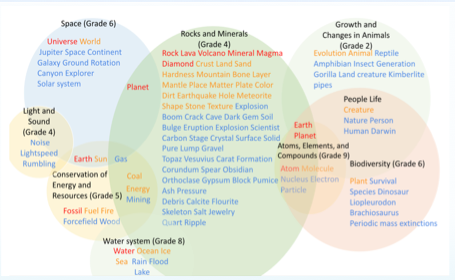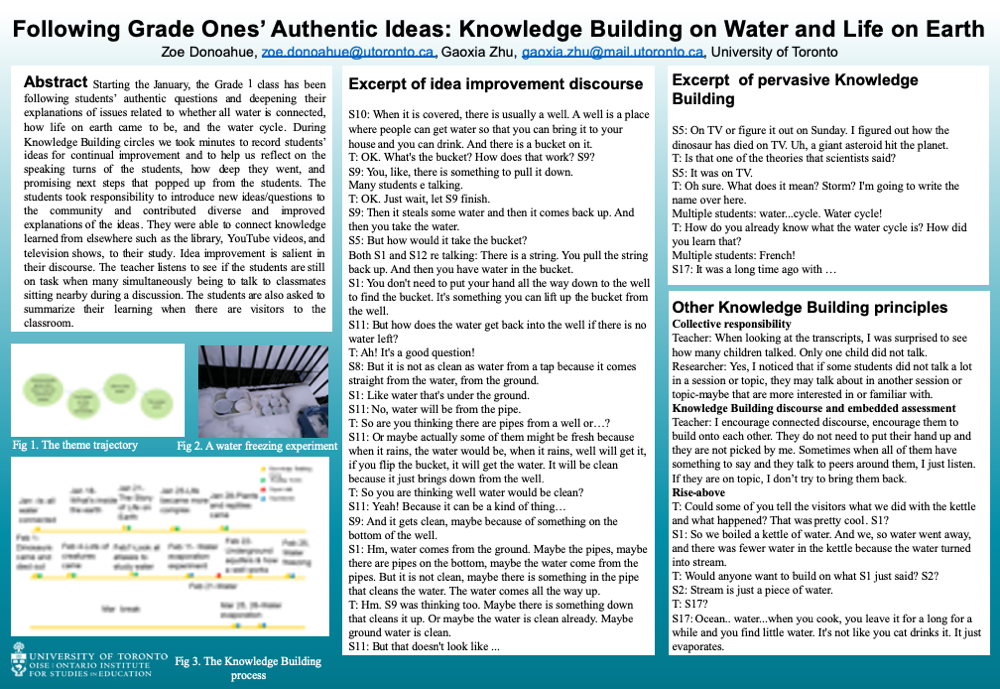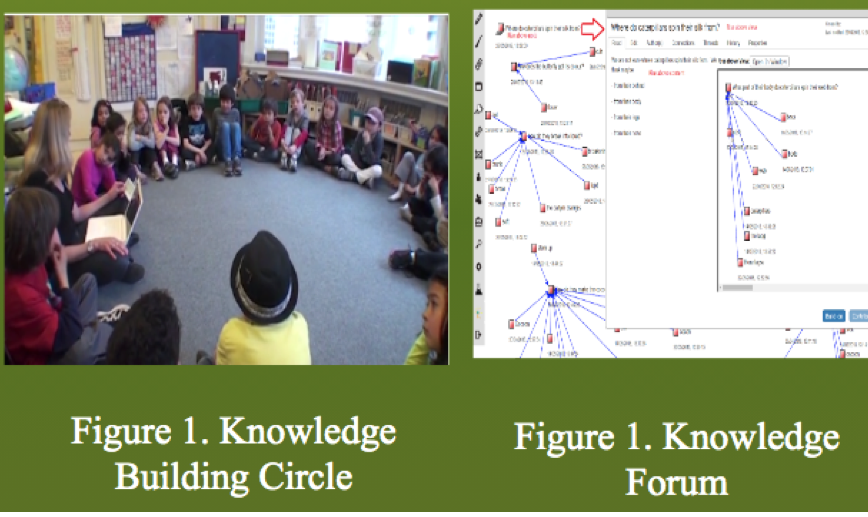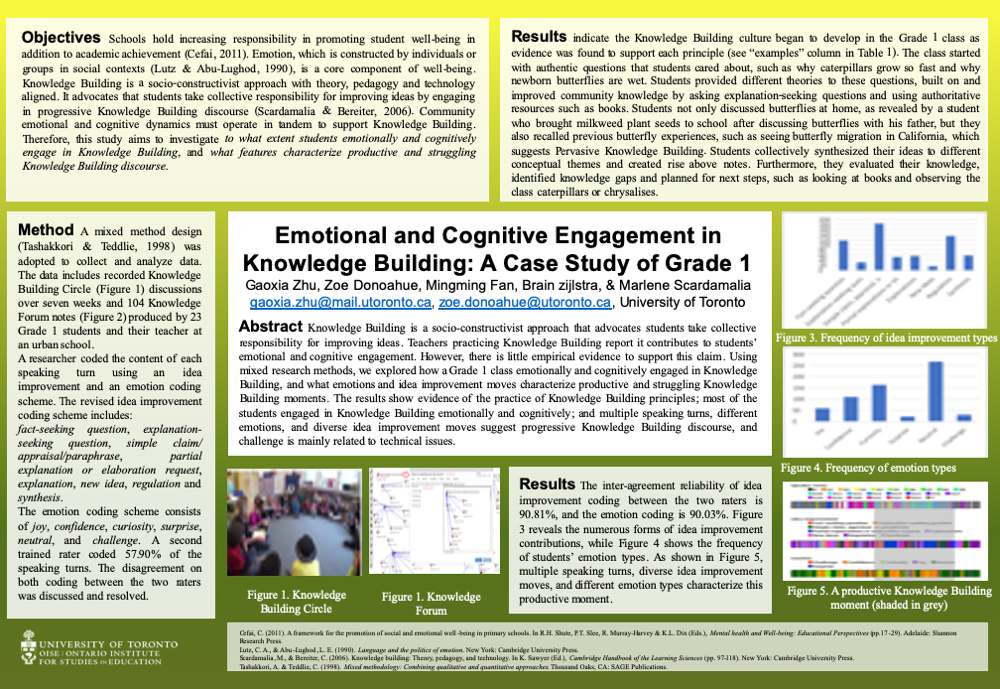Interdisciplinary studies foster integration of ideas across disciplines. Knowledge building pedagogy, with its 12 principles and associated technology, Knowledge Forum®, provides multifaceted support for linking ideas across disciplines and communities. This exploratory study aims to assess the extent to which elementary-school students within knowledge building communities work productively with ideas across content areas. Toward that end we examine “crisscrossing topics” — student use of concepts from multiple content areas — to explore the extent to which students think and theorize across disciplinary boundaries, use concepts found in curriculum guidelines at and beyond their grade level, and generate cross-topic notes that advance discourse. Results show that elementary school students engaged in knowledge building can extend knowledge boundaries and bring a considerable range of conceptual content to their work, resulting in productive discourse threads that contribute to community knowledge.




